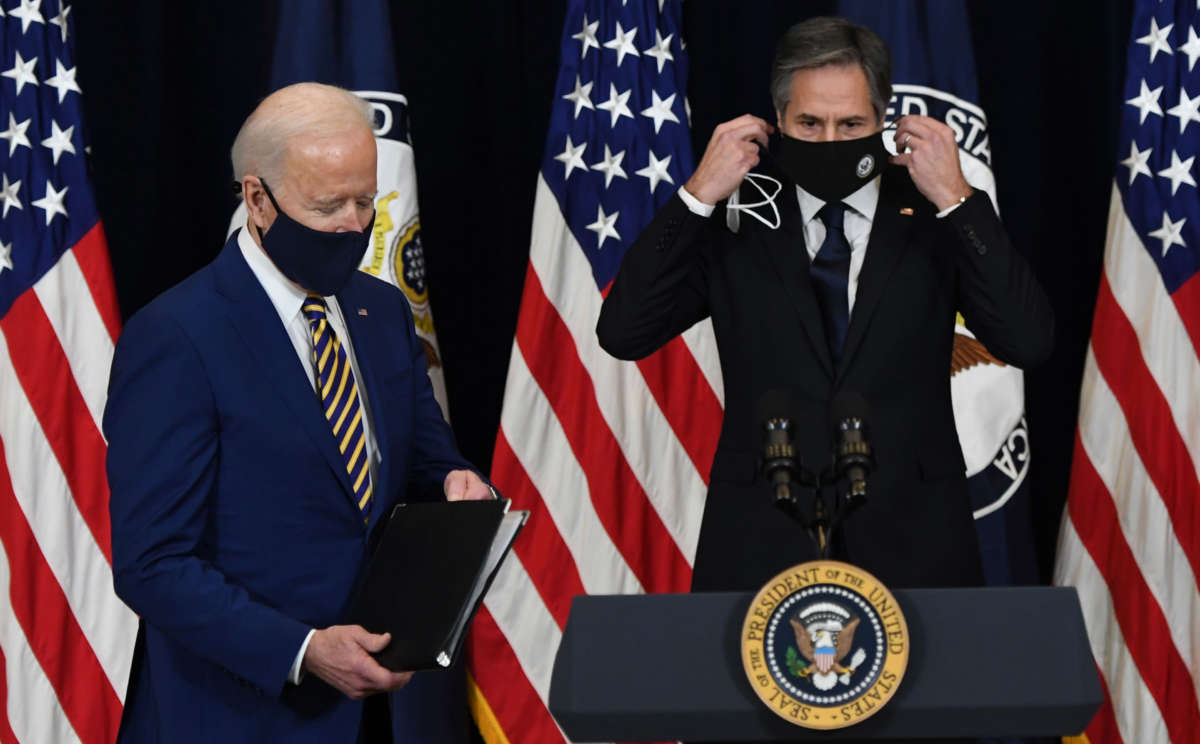The United States will seek to rejoin the United Nations Human Rights Council — as an observer nation, initially — according to a statement made on Monday by Secretary of State Antony Blinken.
“When it works well, the Human Rights Council shines a spotlight on countries with the worst human rights records and can serve as an important forum for those fighting injustice and tyranny,” Blinken said in announcing the decision.
The move comes almost two years after the Trump administration removed the U.S. from the council as both a voting and an observing member. The choice to do so, ostensibly to protest against the council’s actions that Trump officials had disagreed with, “did nothing to encourage meaningful change, but instead created a vacuum of U.S. leadership, which countries with authoritarian agendas have used to their advantage,” Blinken said.
There are 47 member countries on the UN Human Rights Council. No country can serve as a voting member of the council for more than two consecutive three-year terms.
Officials stated that the U.S. will attempt to win a spot on the council as a voting member sometime later this year, possibly replacing Austria, Denmark or Italy when those nations’ terms expire this fall.
The council has faced a number of criticisms in recent years, most notably for having among its members representatives from countries with notable records of human rights abuses themselves, including China, Russia, Cuba, Venezuela and Eritrea. But while the Trump administration cited the membership of those nations as a partial reason for leaving the council, it is believed that the decision may have been largely prompted by the Trump White House’s desire to bolster diplomatic ties with Israel, which is widely viewed in the international community as a chronic violator of human rights. Biden’s decision to reenter the council will likely earn him the criticism of Republicans.
Former United Nations ambassador Nikki Haley, who served in that post when the U.S. left the council, justified the decision to leave at the time by saying the country’s commitment to the issue “does not allow us to remain a part of a hypocritical and self-serving organization that makes a mockery of human rights.”
Ironically, the administration’s departure from the council came about at the same time that the Trump White House was engaged in human rights abuses of its own — that of forcibly separating migrant children from families and placing them in cages as they came across the U.S.’s southern border. Thousands of families were ripped apart from one another as a result of the Trump administration’s zero-tolerance policy on immigration, and to this day more than 600 children remain separated from their loved ones.
Media that fights fascism
Truthout is funded almost entirely by readers — that’s why we can speak truth to power and cut against the mainstream narrative. But independent journalists at Truthout face mounting political repression under Trump.
We rely on your support to survive McCarthyist censorship. Please make a tax-deductible one-time or monthly donation.
